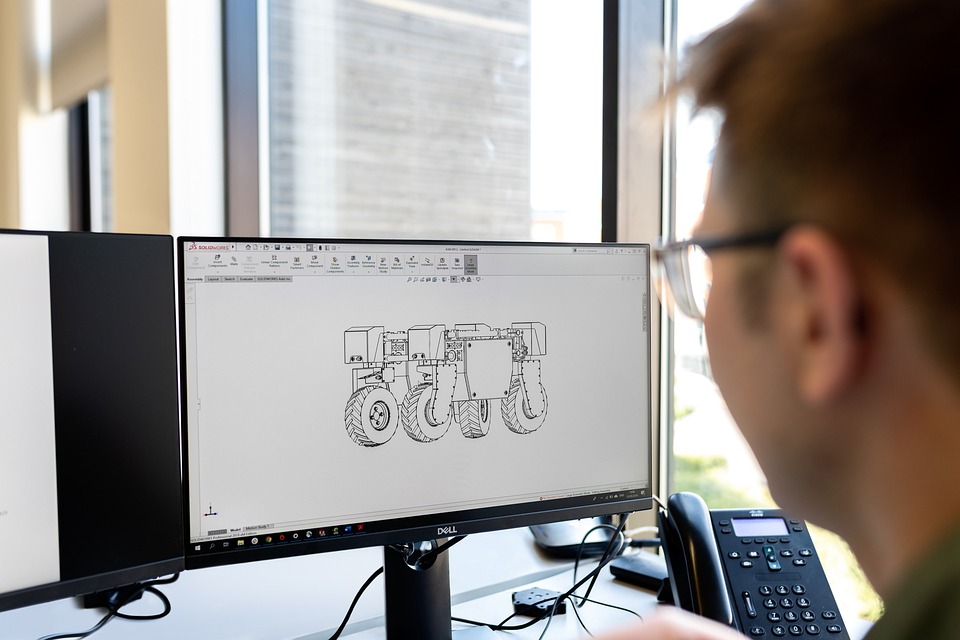Mechanical engineering has long been celebrated as a cornerstone of technology and innovation. Traditionally, the field is associated with designing machinery, developing complex structures, and optimizing manufacturing processes. However, as the landscape of technology continues to evolve, so too do the career opportunities within mechanical engineering. For aspiring engineers looking for a path less trodden, many unconventional careers provide exciting, dynamic, and fulfilling routes that extend far beyond the conventional blueprint.
1. Robotics and Autonomous Systems
As industries rapidly adopt automation, mechanical engineers are crucial to designing advanced robotics systems. Professionals in this field work on autonomous vehicles, drones, and even robotic surgery devices. Beyond the technical skills in mechanics, engineers in this sector must understand artificial intelligence (AI) and machine learning, enabling them to create intelligent systems capable of performing tasks with minimal human intervention.
2. Renewable Energy Systems
With a global emphasis on sustainability, mechanical engineers now play an integral role in designing renewable energy systems. From wind turbines to solar panel installations, engineers are not only designing new technologies but also researching ways to improve efficiency and reduce costs. This sector offers engineers the chance to work on innovative projects focused on combating climate change and reducing our reliance on fossil fuels.
3. Consumer Product Design
While many people think of mechanical engineers solely as designers of large machinery or vehicles, the realm of consumer product design is an exciting avenue filled with creativity. Mechanical engineers can apply their technical knowledge to develop everyday products, ensuring they are both functional and user-friendly. Collaborating with industrial designers, they can work on everything from kitchen appliances to wearable technology, allowing for a unique blend of engineering and artistry.
4. Biomedical Engineering
Mechanical engineering’s principles are making significant inroads into the healthcare sector. Biomedical engineers utilize their skills to design medical devices, prosthetics, and assistive technologies. This field requires a unique combination of mechanical engineering, biology, and materials science, making it a rewarding career for those passionate about improving human health and quality of life.
5. Data Analytics and Simulation
In an era where data drives decision-making, mechanical engineers with skills in data analytics can find numerous opportunities. By using data to simulate mechanical systems and forecast results, they can enhance product designs, optimize processes, and predict failures before they occur. Engineers who are proficient in CAD (Computer-Aided Design) and simulation software can pivot towards roles that focus on big data, leveraging their technical background to provide strategic insights.
6. Entertainment and Theme Park Design
Not every mechanical engineer’s career is about aerospace or automotive industries. The world of entertainment offers an innovative and fun avenue for mechanical engineers. Designing theme park rides, attractions, and immersive experiences requires creativity, engineering, and a deep understanding of mechanics. These engineers work alongside designers and artists to bring fantastical concepts to life, requiring a combination of mechanical precision and imaginative thinking.
7. Technical Writing and Education
For those who possess a knack for communication, blending mechanical engineering expertise with writing or teaching can be an unconventional yet rewarding career path. Technical writers produce manuals, guides, and documentation that help engineers and end-users understand complex products. Similarly, educators play a critical role in shaping the next generation of engineers, providing them with the skills and knowledge to succeed in various technical fields.
8. Intellectual Property and Patent Law
Mechanical engineers with an interest in law can find a unique niche in intellectual property and patent law. Understanding the technical aspects of inventions and products is crucial for protecting innovations. Engineers in this field work as patent examiners or consultants for patent attorneys, ensuring that new technologies are adequately protected under intellectual property laws.
Conclusion
Mechanical engineering is a versatile and dynamic field that extends far beyond traditional roles in design and manufacturing. From renewable energy systems to entertainment design, the opportunities for innovation and creativity abound. Aspiring engineers should consider these unconventional career paths that not only leverage their technical expertise but also allow them to impact society in meaningful ways. As technology continues to evolve, so too will the boundaries of mechanical engineering—making now an exciting time to pursue a career in this essential and ever-changing discipline.




